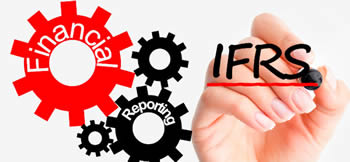

In addition to the above, you must also follow these four principles while creating financial statements:

Sincerity: Provide an accurate and impartial depiction of your business’s financial situation.Consistency: Consistently apply the same accounting standards to your entire accounting process.Regularity: Businesses must follow all specific rules and regulations.The GAAP has 10 principles-the Principle of: GAAP includes a wide range of topics, including financial statement presentation, assets, liabilities, equity, revenue, expenses, fair value, nonmonetary transactions, and so on. Accrual accounting is the most complex method that uses more advanced accounts, such as accounts payable and long-term liabilities. With GAAP, you must also use accrual accounting. The standard format makes it easy for investors, lenders, and auditors to gather information about your business.
GAAP STANDS FOR HOW TO
These accounting principles determine how to create financial statements. And, financial statement outlines should be the same as other businesses following GAAP. Under GAAP, you need to structure your financial statements the same way from year to year. Think of these principles as a rulebook that companies follow when creating financial statements (e.g., income statement, balance sheet, and cash flow statement). Generally accepted accounting principles ensure businesses use a standard method to report financial information. Disclose certain supporting financial information.Summarize accounting records into financial statements.Organize financial information into accounting records.Generally accepted accounting principles are a set of rules, standards, and procedures certain businesses and organizations must follow. What does GAAP stand for? GAAP stands for generally accepted accounting principles. But, what is GAAP exactly? And, how do you know if you have to follow said guidelines? Let us give you the GAAP rules rundown. Many businesses must follow a set of accounting guidelines called GAAP. Otherwise, you may wind up making mistakes and costing your company money-and nobody wants that. When it comes to accounting, you must follow certain rules for recordkeeping or tax reporting.


 0 kommentar(er)
0 kommentar(er)
